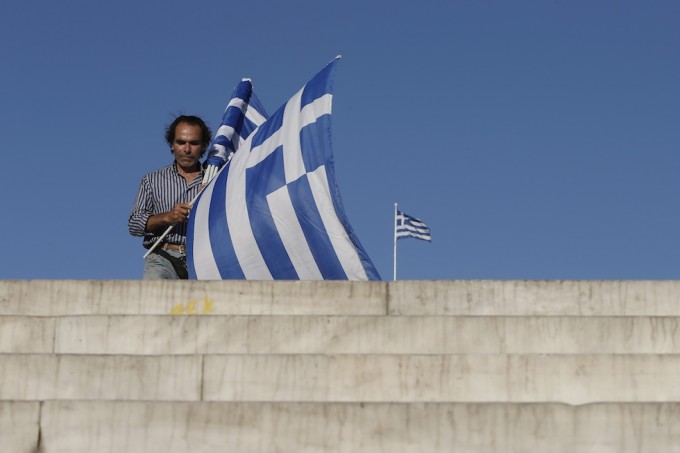GREECE/ CATHOLICS' VOICES
The president of the bishops Papamanolis: no clarity on the referendum. Father Voutsinos (Caritas): here we live day to day

After the joy and the hugs in Syntagma square, in front of Athens’ parliament, of the supporters of “no” vote, the winners at the referendum of July 5th, Greece reawakens with the same problems as before, if not worse – according to the defeated “yes-vote” supporters. The atmosphere of celebrations was soon replaced by a silent, concerned waiting period. “Nobody smiles anymore, and people live day to day, just as before”, said the president of Caritas Greece Father Antonio Voutsinos. Unclear questions. Over 60% of citizens decided to say “oki”, (no) to the referendum called by premier Tsipras on the creditors’ proposals, but it’s not enough to restore a smile to a country on the brink of default. “In reality – critically remarked the president of Greek Catholic bishops, Monsignor Franghiskos Papamanolis – the referendum asked Greek voters whether or not to accept the plan submitted by the European Commission, European Central Bank and International Monetary Fund at the Eurogroup of 25 June. But no one knew the contents of the agreement that has was not even translated in Greek”. According to the archbishop, the question was not clearly stated as required by law: “If they had asked:’ Do you want Europe, do you want the euro, yes or no?’, 80% of citizens would have responded ‘yes’. I believe that the ‘no’ would have had more value if it had been the answer to a clear question. This was not the case. And the Greece premier proved to be incapable”. “We want a Europe of solidarity”. Never like today, Greece needs certainties and nobody knows whether they will come with the negotiations resumed at the Eurogroup of July 7. On the aftermath of the vote statements from European leadership were far from reassuring. Now the baton is in the hands of Greece and who knows if the resignation of Economy minister Yanis Varoufakis (replaced by Euclid Tsakalotos), or the reassuring words of Alexis Tsipras: “We want an agreement to end austerity and we want a Europe of solidarity. We are prepared to continue negotiating with a program of reforms and social justice”, will facilitate an agreement. “No” to austerity. These words are shared also by father Voutsinos: “The outcomes of the polls didn’t say ‘no’ to Europe and to the euro but to all the austerity measures that will further worsen widespread poverty”. The president of Caritas Greece knows the situation very well as the Catholic Church in Greece has been supporting all those in need since the outbreak of the crisis. “The government hopes there will be a more sustainable agreement for our country. We want to continue being a part of Europe. We want to stay in Europe but how is this possible when the welfare of banks is given priority over that of the people?”. In the meantime, Greece’s domestic political front is changing. On Monday July 6 premier Tsipras called upon political leaders to create a united front, which the far-right Golden Dawn has stood apart from. “It’s a good sign – pointed out Father Voutsinos – for the first time all parties seek convergences and common visions. Perhaps it is the first result of this referendum. With this vote, the Greek population has asked Europe for a sustainable agreement that will allow them to recover their hope in the future”. A sign to the EU. Words of hope were also spoken by bishop Dimitrios, apostolic Exarch for the Catholics of Byzantine rite in Greece. “With this vote Greek people reiterated their intention to stay in Europe and negotiate with the creditors. There can be no other avenues. In the desperation that of Sunday was a vote a hope. Both those that voted ‘yes’ and the supporters of the ‘no’ vote share the same problem, how to survive the present moment”. For the exarch “there is little to be happy about, but we hope that our leaders also realize Greece’s obligations as a debtor Country and how the money received to date has been spent. A rupture with our European partners is unconceivable. It is necessary to reach a sustainable solution that will not lead the population to ruin. Greece – he said – has sent a strong sign to Europe, with an invitation to reflect on the fact that perhaps what is happening here could possibly be replicated in other EU countries before long”.